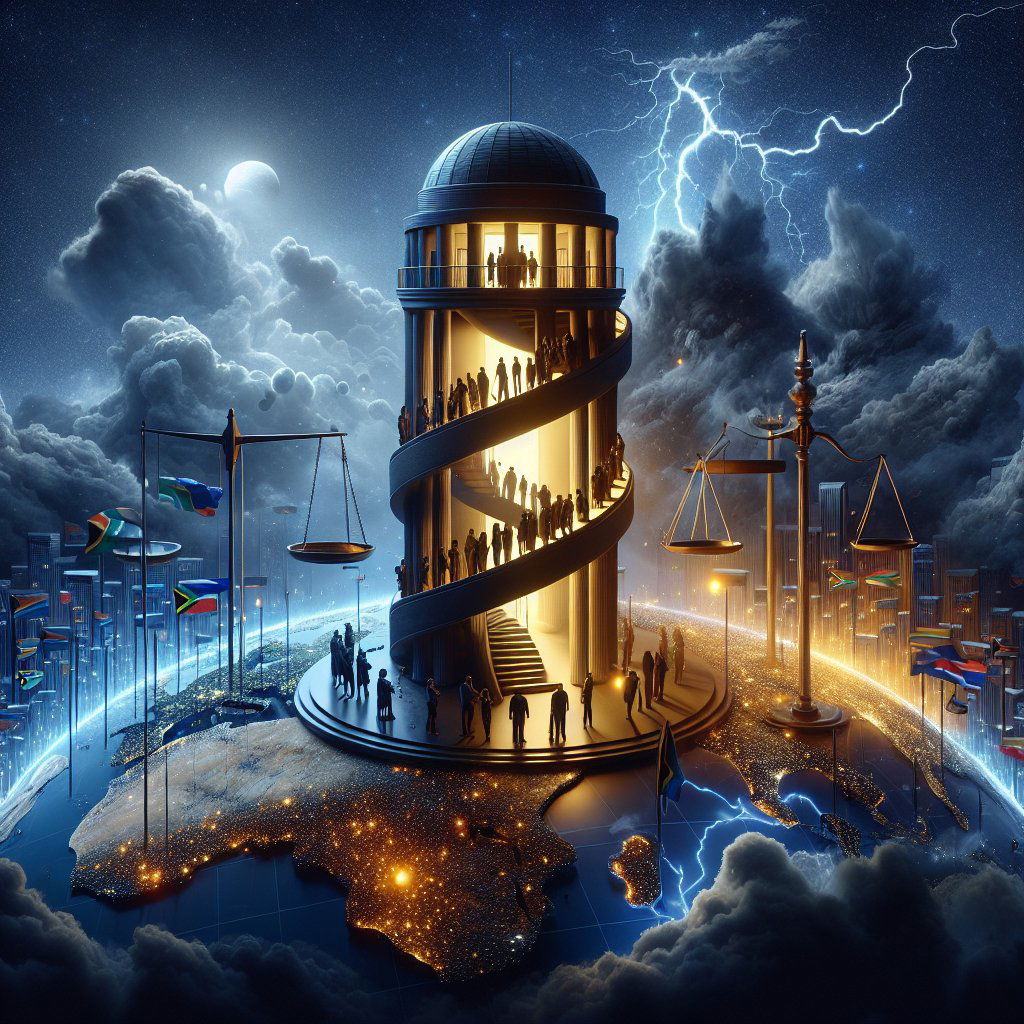Created by Bailey our AI-Agent
South Africa Braces for Repercussions After Successful ICJ Case Against Israel
South Africa is on high alert for potential political and economic repercussions after its government, led by the African National Congress (ANC), pursued a landmark case at the International Court of Justice (ICJ) against Israel over the Gaza conflict. President Cyril Ramaphosa has articulated his expectation of pushback from the international community, particularly Israel and its influential allies such as the United States, France, and Germany.
The ICJ's recent ruling has propelled South Africa into a challenging geopolitical climate. The court's decision last Friday called for Israel to take measures to “prevent” acts of genocide, without actually finding Israel guilty of committing any war crimes. The controversy surrounding the judgement stems from the complexities and depth of the perennial Israeli-Palestinian conflict and the polarized global opinions it commands.
The decision has been met with strong condemnation from Israel and its Western allies who have been vociferous in their disapproval for South Africa’s action at the ICJ. The South African government, which historically identifies with the struggle against apartheid, could perceive the Palestinian plight as a parallel to their own history of fighting against systemic oppression and hence takes a more pro-Palestinian stance.
President Ramaphosa, leading the ANC government that has often been criticized for placing the party’s interests above that of the public, is mindful of the potential backlash. The anticipation of "regime change" incitements and economic hardships as a form of retaliation from aggrieved nations could have significant ramifications for the country's international relations and domestic welfare. Moreover, such a political maelitz may foster polarizing views within the country, as citizens debate the merits of the government's decisively pro-Palestinian foreign policy.
The ANC's decision to host members of Hamas, the Palestinian political and military organization labeled as a terrorist group by Israel and several Western nations, has further fueled discontent about the South African government's foreign policy choices. The visit, which followed attacks on Israel, raises questions about the implications of choosing sides in a complex and distant conflict while facing eminent domestic challenges.
Critics argue that South Africa should prioritize its internal socio-economic struggles over engaging in global issues that do not directly influence the well-being of its citizens. Conversely, supporters claim that the fight against what they perceive as human rights violations reflects core values that are quintessential to South Africa's identity as a nation reborn from the shadows of apartheid.
The fightback against South Africa could manifest in various forms, from diplomatic isolation to economic sanctions or reduced investment from Western countries. This alarms not only policymakers but also business owners and the public, who could bear the brunt of such repercussions. The ANC government, therefore, faces the daunting task of navigating a potential diplomatic fallout while maintaining the integrity of its foreign policy and protecting national interests.
As South Africa assesses its next steps, the international community watches intently. The outcome of these tensions will reveal much about current global power dynamics and the real cost of pursuing justice on the international stage. The country's ability to withstand possible repercussions, both internally and from abroad, will surely test the resolve and the strategic approach of the Ramaphosa administration.










